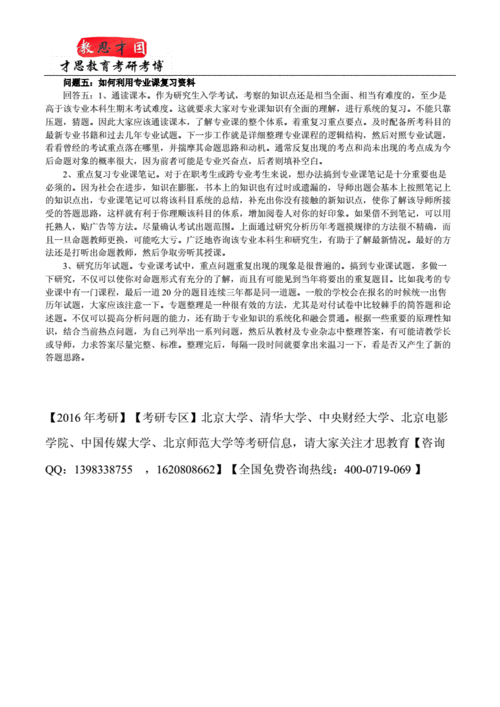Title: Guide to Passing the Beijing Foreign Studies University Translation Master's Entrance Examination
Introduction
The Beijing Foreign Studies University (BFSU) is renowned for its excellence in language education and translation studies. Its translation master's program attracts numerous candidates aspiring to excel in the field of translation. Successfully passing the entrance examination is crucial for admission. This guide aims to provide comprehensive insights and strategies for tackling the BFSU translation master's entrance examination.
Understanding the Examination Structure
The BFSU translation master's entrance examination typically comprises multiple components to assess candidates' language proficiency, translation skills, and analytical abilities. These components commonly include:
1.
Language Proficiency Test
: Assessing candidates' proficiency in both Chinese and a foreign language, usually English.
2.
Translation Test
: Evaluating candidates' translation skills, including both written translation and consecutive interpretation.
3.
Comprehensive Test
: Covering areas such as general knowledge, translation theory, and cultural awareness.
Preparation Strategies
1.
Language Proficiency Enhancement
:
Focused Practice
: Dedicate time to improve proficiency in both Chinese and English, focusing on grammar, vocabulary, reading comprehension, and writing skills.
Language Exchange
: Engage in language exchange activities or find language partners to practice speaking and listening skills.
2.
Translation Skills Development
:
Translation Exercises
: Regularly practice translating texts of various styles and subjects to hone translation skills.
Feedback and Correction
: Seek feedback from experienced translators or teachers to identify areas for improvement and refine translation techniques.
3.
Cultural and General Knowledge Acquisition
:
Reading
: Read extensively on a wide range of topics including literature, current affairs, history, and culture in both Chinese and English.
Cultural Immersion
: Immerse yourself in the cultures of the languages you are studying through films, music, and other cultural activities.

Specific Tips for Each Component
1.
Language Proficiency Test
:
Time Management
: Allocate time wisely for each section of the test, ensuring sufficient time for comprehension and accurate responses.
Vocabulary Expansion
: Prioritize expanding vocabulary in both languages, as it is crucial for understanding and expressing ideas effectively.
2.
Translation Test
:
Contextual Understanding
: Focus on understanding the context and nuances of the text before translating, as accurate interpretation depends on grasping the meaning beyond literal translation.
Accuracy Over Speed
: Emphasize accuracy over speed during translation, ensuring fidelity to the original text while conveying its essence in the target language.
3.
Comprehensive Test
:
Broaden Knowledge Base
: Stay updated on current events, global issues, and translation theories to tackle questions on general knowledge and translation concepts.
Critical Thinking
: Develop critical thinking skills to analyze and evaluate information effectively, enabling you to respond thoughtfully to analytical questions.
Conclusion
Preparing for the BFSU translation master's entrance examination requires dedication, thorough preparation, and a strategic approach. By enhancing language proficiency, refining translation skills, and broadening cultural and general knowledge, candidates can increase their chances of success. Remember to practice consistently, seek feedback, and stay informed about the examination structure and requirements. With diligent effort and effective strategies, aspiring candidates can confidently approach the BFSU translation master's entrance examination and embark on a rewarding journey in the field of translation.
文章已关闭评论!
